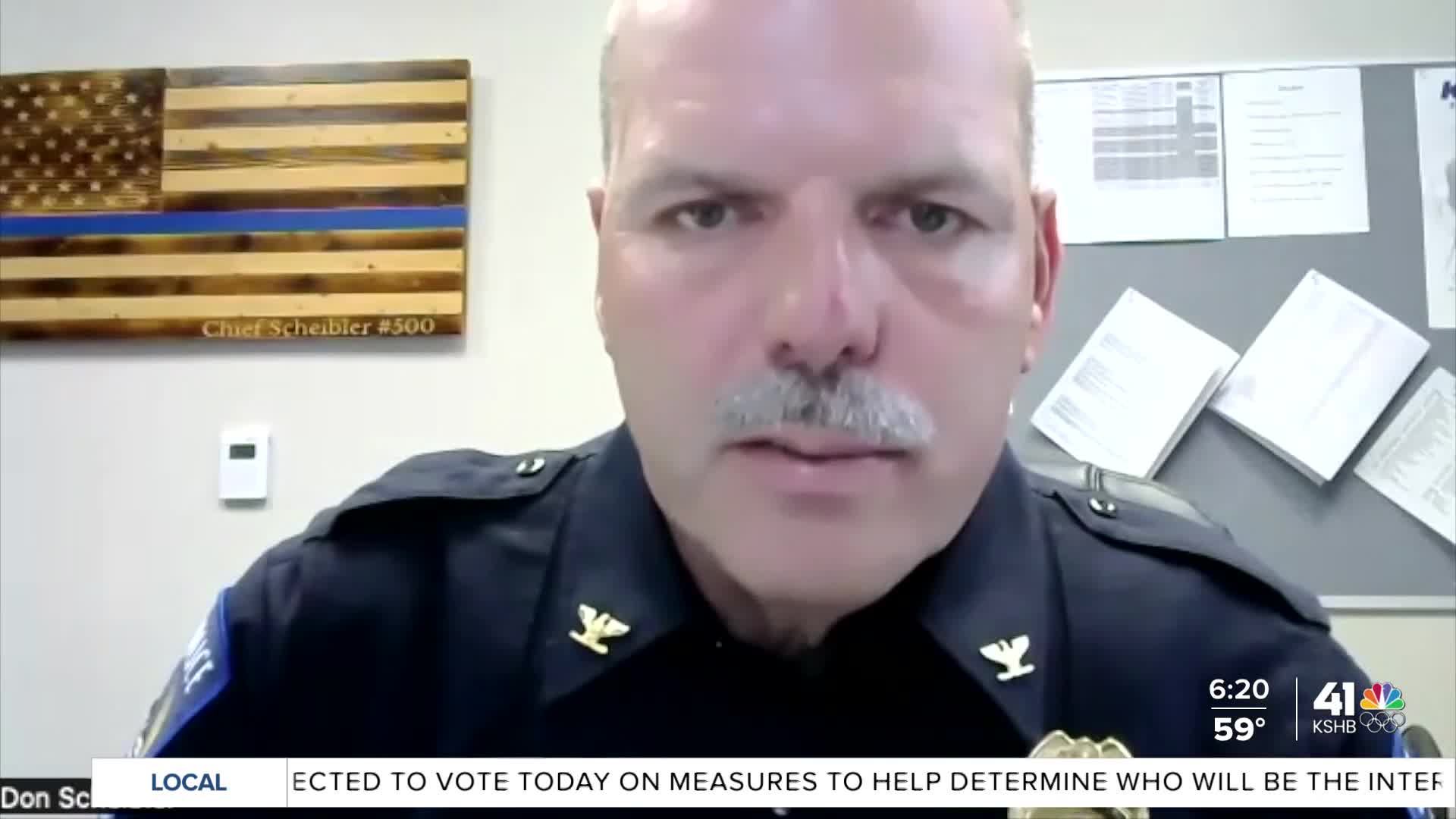KSHB 41 reporter Megan Abundis covers Kansas City, Missouri, including neighborhoods in the southern part of the city. This story is a part of her Domestic Violence Awareness coverage for the month of October. Share your story idea with Megan.
—
Law enforcement officers face life-threatening dangers when responding to domestic violence calls, a reality highlighted by two recent line-of-duty deaths in Kansas.
In less than 4 months, two Kansas law enforcement officers were killed while responding to domestic violence situations. Wyandotte County Sheriff Deputy Elijah Ming and Hays, Kansas, Police Sgt. Scott Heimann died while trying to help women leave their alleged abusers.
"Sgt. Scott Heimann was an amazing person. He was an outstanding law enforcement officer," said Hays Police Chief Don Scheibler. "Scott was one of the most highly trained officers, he was the best of the best."


"Elijah was really a hero, he was," said Isaiah Ming, Elijah's brother.

Officers describe domestic violence 911 calls as particularly dangerous.
"Dangerous, volatile, can be violent and explosive," Scheibler said.
These calls can truly be life-or-death situations for responding officers.
"The person who is willing to harm the person they say they love the most is definitely willing to harm a law enforcement officer, so we recognize that going into the scene," Scheibler said.
Kansas City, Kansas, Police Chief Karl Oakman agrees about the inherent dangers.
"In my 34 years of law enforcement, in the hundreds, well thousands, of domestic violence calls, they are very dangerous because it's always a volatile situation," Oakman said.

"It's a huge challenge in the City of Hays, an overwhelming majority of our homicides are related to domestic violence, it's a challenge for us and it continues to affect our community," Scheibler said. "It continues to be the biggest challenge we have."
In Heimann's case, the situation escalated dangerously.
"It became a barricaded situation," Scheibler said.
When police arrive at domestic violence scenes, they know the aggressor could have various mental health issues or substance abuse issues. Adding to the danger, victims can sometimes turn on the officers trying to help them.
"You go from the suspect being the suspect to now the suspect and victim now attacking you. They are very dangerous calls," Oakman said.
To address these challenges, police departments use "Lethality Assessments" — forms officers complete after domestic violence calls to help get victims to safety more quickly. Kansas City, Kansas, worked with the state and a local domestic violence shelter, Friends of Yates Inc., to create their assessment tool.
"We really took a bigger focus on domestic violence when I first came to the department," Oakman said. "Really, how dangerous those calls are."

"A check sheet that every officer has to fill out on domestic violence incidents," Oakman said.
"When we put that in, we saw our domestic violence-related homicides dropped by 70%," Oakman said.
He said the decrease occurred in 2022, and the numbers continue to decline.
"It will determine if an individual needs immediate resources, which could be anything from a trip to a relative's house, being removed, hotel room for the night," Oakman said.
The assessments are in addition to important training components.
"Updates on domestic violence laws, how to really contact the victims as well as the victim service unit," Oakman said.
Despite safety equipment and training, officers acknowledge the unpredictable nature of these calls.
"There's things we can try to do, unfortunately, when you are responding to a call when someone is out to harm you, or you're responding to a call, and basically it's kind of like a setup, there's very little you can do. We go through robust training on officer safety vests, ballistic helmets, protective equipment," Oakman said.
When officers review incidents afterward, they say sometimes the outcome was unavoidable.
"There's nothing you can change," Oakman said.
"We have to continue to train, to focus on officer safety, to do lethality assessment, but the key is getting them to know that it is not going to get better on its own. They have to reach out for help," Scheibler said.
This help can save lives beyond just victims and abusers — it can protect the officers who risk their lives responding to these dangerous calls.
This story is part of a series examining domestic violence during Domestic Violence Awareness Month. Previous coverage explored Kansas City's specialized domestic violence court system. Upcoming stories will feature programs that reduce recidivism and interviews with survivors and those charged with domestic violence.
This story is part of a month-long series covering domestic violence in the Kansas City area. Here's Megan's previous coverage on the heavy caseload in the court system and on successful intervention programs in Kansas City.
"This story was reported on-air by a journalist and has been converted to this platform with the assistance of AI. Our editorial team verifies all reporting on all platforms for fairness and accuracy."
—





